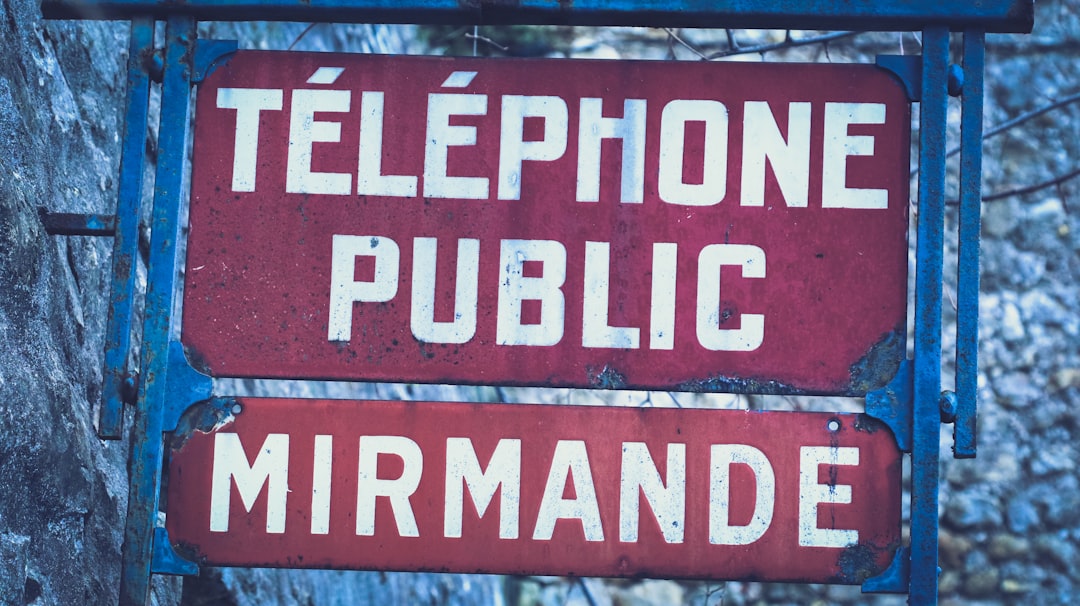In Arkansas, the robocall law protects residents from unwanted autodialed calls and text messages. If experiencing persistent telemarketing or scams, consult a stop unwanted texts lawyer in Arkansas to cease these intrusions. Specialized robocall attorneys and law firms guide individuals through legal processes to ensure compliance with state regulations and quieter phone lines. They can help navigate the Telemarketing and Consumer Fraud and Abuse Prevention Act (TCPA), file complaints, and take legal action against violators. Hiring a specialized lawyer offers strategies from negotiation to litigation for unwanted texts or robocalls, protecting rights and creating a 'do not disturb' environment.
In Arkansas, autodialed calls and text messages without explicit consent are prohibited, making it crucial for consumers to understand their rights. This article navigates the intricate web of Arkansas’ robocall and text message laws, clarifying when automated communication is legal. We empower you with strategies to stop unwanted texts and calls, highlighting the importance of consumer protection. If you’re facing robocall issues, discover how hiring a lawyer in AR can offer relief. Learn about common scams and mistakes to avoid, ensuring you’re equipped with knowledge to combat these intrusions effectively.
- Understanding Arkansas' Robocall and Text Message Laws
- When is it Legal to Use an Autodialer?
- Your Rights as a Consumer: Stopping Unwanted Communication
- How to Hire a Lawyer for Robocall Issues in AR
- Common Scams and Mistakes to Avoid
- Effective Strategies to Combat Robocalls and Texts
Understanding Arkansas' Robocall and Text Message Laws
In Arkansas, the fight against unwanted autodialed calls and text messages is protected by state law. The robocall law in Arkansas prohibits businesses from using automated dialing systems or pre-recorded messages to contact residents without their prior express consent. This means that if you haven’t given explicit permission for a company to call or text you, they are breaking the law.
If you’re receiving unwanted texts or calls from telemarketers or scammers, you have options. A stop unwanted texts lawyer in Arkansas can guide you through the legal process of halting these intrusive messages. Robocall attorneys and law firms specializing in this area can help you understand your rights and take action against violators, ensuring that your phone is free from unwanted intrusions.
When is it Legal to Use an Autodialer?
In Arkansas, the use of autodialers—also known as robotic call systems—is regulated to protect consumers from unwanted and intrusive phone calls, specifically known as robocalls. While these technologies can be powerful tools for businesses, their misuse can lead to significant legal repercussions. It is generally illegal to use an autodialer to make prerecorded or artificial voice calls to any telephone number assigned to a wireless telephone service without the prior express written consent of the called party. This means that businesses and organizations must obtain explicit permission from individuals before using automated dialing systems to contact them.
There are, however, exceptions to this rule. Businesses may use autodialers for certain purposes, such as alerts or notifications, if they comply with specific guidelines outlined in the Telemarketing and Consumer Fraud and Abuse Prevention Act (TCPA). For instance, calls placed for emergency purposes, health-related alerts, political messages, or calls made with the prior consent of the recipient are generally permitted. If you’ve received unwanted texts or robocalls and need legal advice on how to stop them, consulting a lawyer specializing in consumer protection law in Arkansas (stop unwanted texts attorney AR) is advisable. Such legal professionals can guide you through the complexities of the TCPA and help protect your rights as a consumer.
Your Rights as a Consumer: Stopping Unwanted Communication
As a consumer in Arkansas, you have rights when it comes to unwanted communication, especially from autodialers or robocalls. If you’ve been receiving persistent and unwelcome text messages or phone calls from companies or unknown sources, there are legal protections in place to help you. Understanding your rights is the first step towards stopping these intrusive messages.
If you want to put an end to unwanted texts or robocalls, consulting a lawyer specializing in consumer protection or robocall laws in Arkansas (robocall attorney AR) is advisable. They can guide you through the process of filing a complaint with relevant authorities and taking legal action if necessary. There are strict regulations regarding consent for automated dialing systems, ensuring that businesses must obtain explicit permission before contacting consumers via autodialed texts or calls. With the right legal support, you can assert your rights and create a ‘do not disturb’ environment from these unwelcome intrusions.
How to Hire a Lawyer for Robocall Issues in AR
If you’re facing a deluge of unwanted texts or robocalls in Arkansas and are looking to take action, hiring a lawyer specialized in these issues could be your best course of defense. The first step is to find a reputable lawyer for robocall AR who understands the intricacies of telemarketing laws and regulations specific to the state. You can start by searching online for robocall law firm AR or stop unwanted texts attorney AR. Look for attorneys with experience in handling cases related to stop unwanted texts and ensuring compliance with Arkansas’ robocall laws.
Many law firms offering robocall lawyers AR will provide initial consultations, often free of charge, where they can assess your situation and guide you on the best legal options. During this consultation, discuss the type of messages you’ve received, the frequency, and any identifying information about the sender. This information will help your lawyer tailor a strategy to stop the unwanted communication, whether through negotiation, cease-and-desist letters, or, if necessary, legal action against the offending parties.
Common Scams and Mistakes to Avoid
Unwanted text messages from autodialers can be frustrating and often dangerous, especially when they come from scammers looking to exploit your trust. Common scams include impersonating a local law firm or attorney, claiming to have won a prize, demanding immediate payment for services, or offering low-interest loans—all done through automated texts that seem personal but are often malicious. These robocalls aim to trick recipients into sharing sensitive information or clicking on dangerous links.
To protect yourself, it’s crucial to never respond or click on any links from unknown senders. Instead, consider hiring a lawyer specialized in handling robocall cases if you’ve received persistent unwanted texts. In Arkansas, there are legal protections against such practices, and a qualified attorney can guide you through the process of stopping these autodialers from contacting you without express permission. Remember, staying vigilant and knowing your rights is key to avoiding these scams and ensuring your peace of mind.
Effective Strategies to Combat Robocalls and Texts
Unwanted autodialed calls and texts, or robocalls, are a common nuisance, but Arkansas residents have legal protections in place to combat this issue. If you’re tired of receiving unsolicited marketing messages, there are several effective strategies to defend yourself. One powerful tool is to register your number on the National Do Not Call Registry. This federal list prohibits telemarketers from calling or texting registered numbers without prior express consent.
Seeking legal counsel from a robocall lawyer in Arkansas can be immensely helpful. These attorneys specialize in navigating the state’s consumer protection laws and can guide you through options like sending cease-and-desist letters to senders, blocking numbers, or even pursuing legal action against persistent violators. Many law firms offer consultations to discuss your rights and the best course of action, especially if you’re facing a significant number of robocalls or texts from persistent sources.






